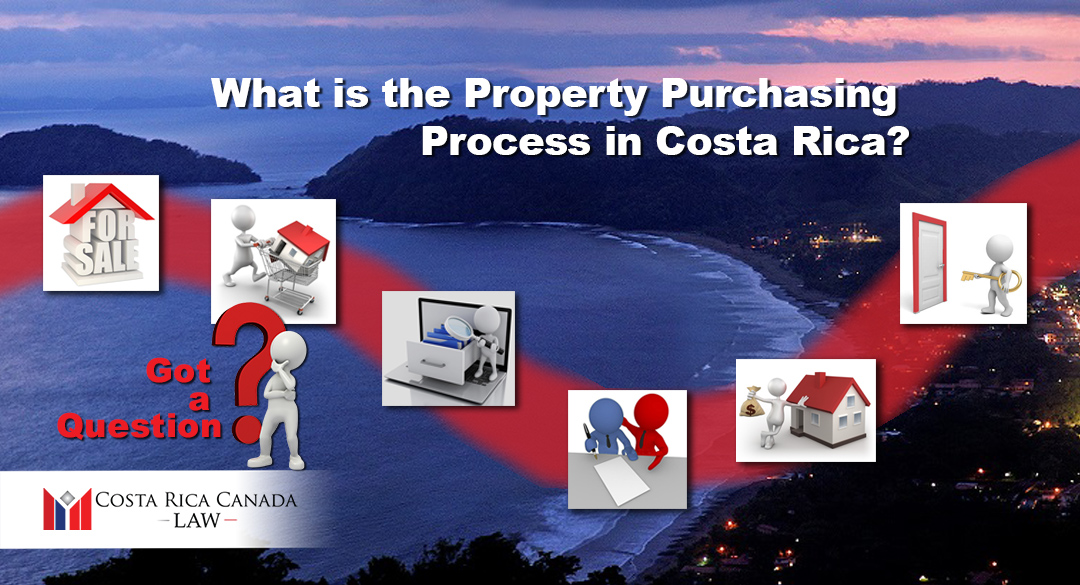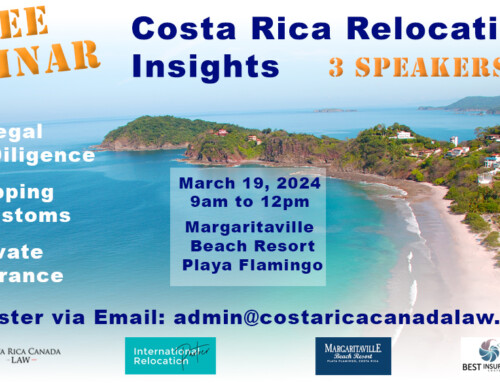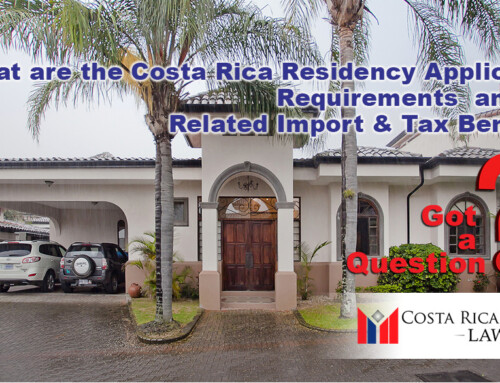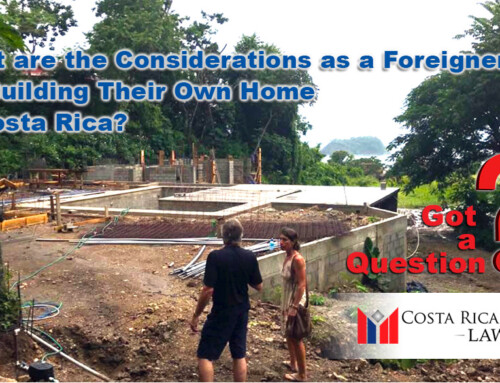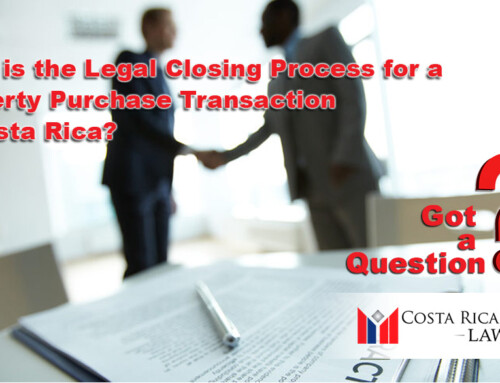What is the Property Purchasing Process in Costa Rica?
Many of you reading this blog will have purchased a property in other jurisdictions previously, particularly in Canada or the United States. The general flow of the property purchasing process in Costa Rica is very similar to that in these other jurisdictions, but the considerations that you should have are very different.
The Flow
The general flow of the purchasing process involves locating a property, gathering preliminary information to make an offer, having a Lawyer draft the Interim Property Purchase Agreement, place a deposit, customarily ten percent of the purchase price, in escrow with a Government Registered Escrow Company, carry-out the legal due diligence to satisfy the stipulated conditions contained in the Agreement, confirm that the Agreement is accepted, and proceed to the closing on the agreed-upon closing date.
The Considerations
When looking for a property to purchase, there being no regulation of the Real Estate Industry, it is very important to select a Realtor who has good local knowledge of the area where you wish to purchase a property. No formal MLS exists in Costa Rica and accordingly, the only manner in which you can be assured of having been presented the various property purchase options in an area, is to have a Realtor with personal knowledge of what properties for sale exist.
It is also an important consideration to select a Lawyer for the closing, who is a Real Estate Lawyer and is knowledgeable in the areas of legal due diligence to be completed in the property purchase. It is important for the Purchaser’s Lawyer to review the offer to be presented by the Realtor to the Seller prior to it being signed. The legal due diligence considerations undertaken will vary significantly between purchasing an existing fully constructed property and that of a building lot for future construction. These differences are discussed in a separate blog that I have written.
One significant difference in Costa Rica is the treatment of the Closing Costs, which are negotiable as to payment between a Seller and a Purchaser and should be addressed in the initial offer presented. Closing Costs routinely approximate four percent of the property purchase price and are comprised of the Notary fees, VAT tax on the Notary fees, Property Transfer Tax, National Registry fees, and escrow fees.
A Costa Rica Notary Public, who also must be a qualified Lawyer, will attend the closing, being responsible for the drafting of the Property Title Transfer Deed, and its execution by the Seller and the Purchaser on the closing date.
In Costa Rica, the amount of Government oversight by various Government Agencies for those matters of legal due diligence is considerably less than that which exists in many foreign jurisdictions, such as Canada and the U.S. The ability to acquire the necessary information to satisfy the due diligence conditions is also not as readily available. This can result in a request by the Purchaser for an extension of the time limits to satisfy the due diligence conditions. The burden of conducting this due diligence falls entirely to the Purchaser and the Lawyer that they would select to represent them, to carry it out in the correct manner for the Purchaser to reach an informed decision as to whether to proceed with the property purchase. In Costa Rica, there are no Title Insurance Companies that carry out this due diligence process.
My Opinion
For foreigners making a first-time property purchase in Costa Rica, it is very important that they select the correct professionals to represent their interests on an independent basis. Purchasers should always select a Lawyer to represent them, who is acting independently of the Seller’s interests in all respects.

